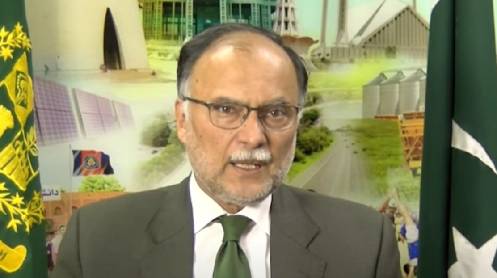ISLAMABAD: Planning Minister Ahsan Iqbal has revealed that Pakistan received merely $600 million in foreign aid following the devastating 2022 floods that inflicted over $30 billion in damages and losses across the country.
Speaking at a press conference on Friday, the minister said that apart from this limited assistance, all other international commitments came in the form of loans — most of them repurposed from previous arrangements. “This is an irony,” he remarked, recalling that the global community had pledged a $100 billion climate-finance fund but “did not provide even $1 billion” to Pakistan in its time of need.
Mr. Iqbal said that after consultations, the government decided to address the latest round of flood-related damages through domestic resources instead of relying on “external crutches.” Preliminary estimates place the recent losses at around Rs822 billion (approximately $2.9 billion), including Rs430 billion in agriculture and Rs307 billion in infrastructure.
The floods claimed more than 1,039 lives, injured 1,067 people, and damaged over 229,000 houses — with Punjab being the hardest hit, accounting for Rs632 billion of total losses. The calamity also damaged 2,811 kilometers of roads, over 2,200 livestock, 2,200 educational institutions, 250 health facilities, and nearly 866 water infrastructure assets. Crop losses included 3.4 million cotton bales, over 1 million tonnes of rice, and up to 3.3 million tonnes of sugarcane.
Mr. Iqbal noted that around 6.5 million people across 70 districts were affected, with 4 million temporarily displaced. Surveys to assess the full economic impact are ongoing and will be finalized within two weeks, he added.
Discussing the progress on the China-Pakistan Economic Corridor (CPEC), the minister said the minutes of the recent Joint Cooperation Committee (JCC) would be completed by month-end. China, he added, had agreed to finance 85 percent of the Karakoram Highway’s expansion linked to the Diamer-Bhasha Dam, with bidding expected to start in two months.
Highlighting the government’s future direction, Mr. Iqbal announced that 2026 has been designated as the “Year of Reform” — aimed at modernizing Pakistan’s economy, governance, and social systems through bold and structural changes. A three-year reform plan will focus on wealth creation, investment promotion, reducing bureaucratic hurdles, and enhancing business competitiveness.
He also said that the National Institute of Public Administration is being upgraded into a university to train civil servants in global best practices for economic development and governance.
Story by Khaleeq Kiani







